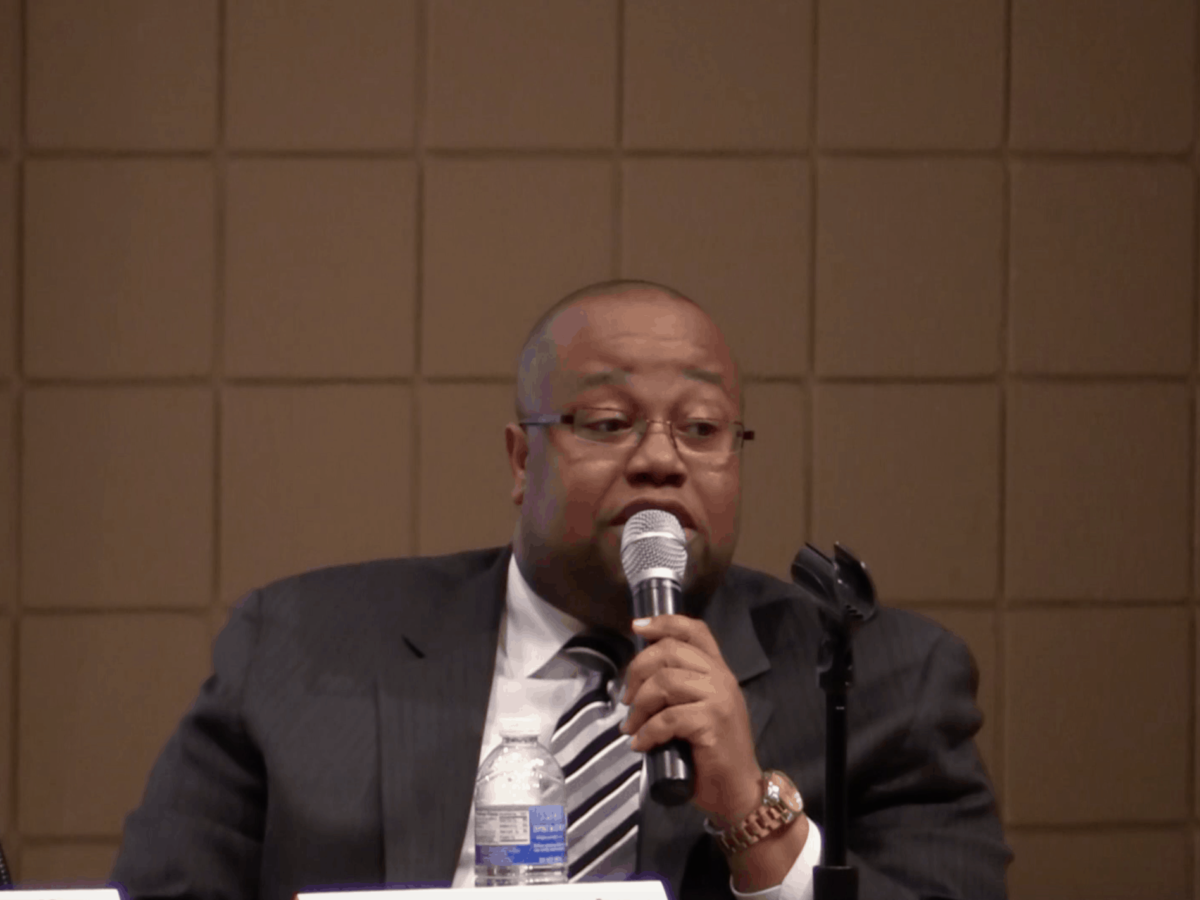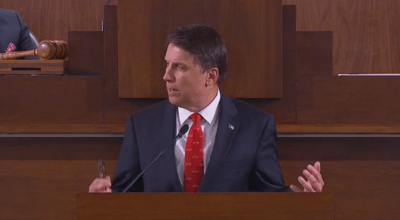

Four public school superintendents gathered at the North Carolina Central University School of Education on Tuesday to discuss a variety of topics, including the toll that budget cuts and charter schools have taken on their school systems.
One of the panelists, Bert L’Homme, now superintendent of Durham Public Schools, left North Carolina and his position as Franklin County superintendent in the 2008-09 school year.
“And then the great recession hit and funding was slashed dramatically,” he said.
Since then, 44,000 more children have joined the public schools and the budget has only now reached the level it was seven years ago. And much of that goes to employee salary and benefits changes which actually drain funds from the system, L’Homme said. In 2008-09, the state budget on K-12 education was $7.8 billion; in 2014-15, the state budget on K-12 education is $8.1 billion.
“Take those state mandated salary changes and the cost of health care and retirement into account and that’s more than a billion dollars in state cuts for textbooks, transportation, teacher assistants, and teachers,” he said.
His remarks illustrated a frustration shared by all the superintendents on the panel, which was held by the League of Women Voters of Orange-Durham-Chatham.
Del Burns, Interim Superintendent of Orange County Schools, shared his journey from interim superintendent in Edgecombe County Schools in 2011 to his current role.
Orange County provides the largest per-pupil county supplement in the state, he said: $4,100 last year and $4,400 this year. As a result, the district has been mostly insulated from state budget changes.
“No teachers have been dismissed through a reduction in force. No teacher assistants have been dismissed through reduction in force. No programs have been cut. No services have been cut,” he said, noting there had been some deferred maintenance and reductions in central services administrative positions.
In his time in Edgecombe, on the other hand, the county only provided a $900 per-pupil county supplement, he said. He witnessed the dismissal of 30 teacher assistants, 20 teachers, and the closure of a school.
“The ability of Edgecombe County to respond to the budget reductions on the state side was severely limited,” he said.
Moderator Dr. Wynetta Lee, dean of the School of Education at NCCU, asked the panelists at one point for their take on charter schools.
Tom Forcella, superintendent of the Chapel Hill-Carrboro City School System, which has one charter school, said they are not fulfilling their purpose.
“I think we missed the boat in charter schools when the initial thinking about charter schools was it was supposed to be about innovation and creating different ways of doing business,” he said.
Instead he said they copy what public schools do, but without the special needs children or low-income students who don’t have access to transportation.
“They’ve created a clientele that looks very different than traditional public schools,” he said.
He added that the idea that charter school innovation would filter to public schools was a myth.
“There is very little dialogue,” Forcella said.
Lee asked near the end what the superintendents thought parents should be doing to advocate for public schools.
Derrick Jordan, superintendent of Chatham County Schools said parents and citizens should ask a lot of questions. And they should pay attention to their elected officials.
“I think we have to hold people accountable,” he said. “If accountability is good enough for the public school system, it’s good enough for the people making decisions about public schools.”


